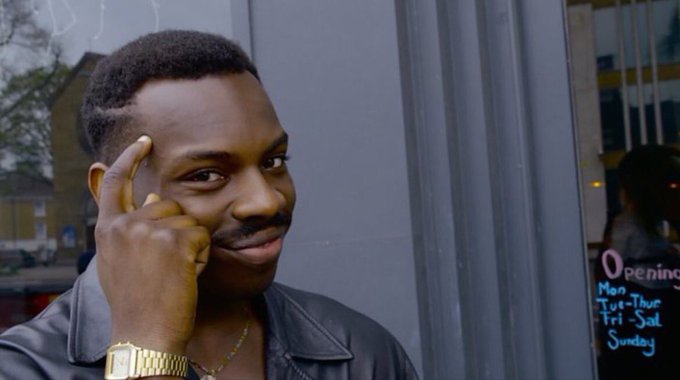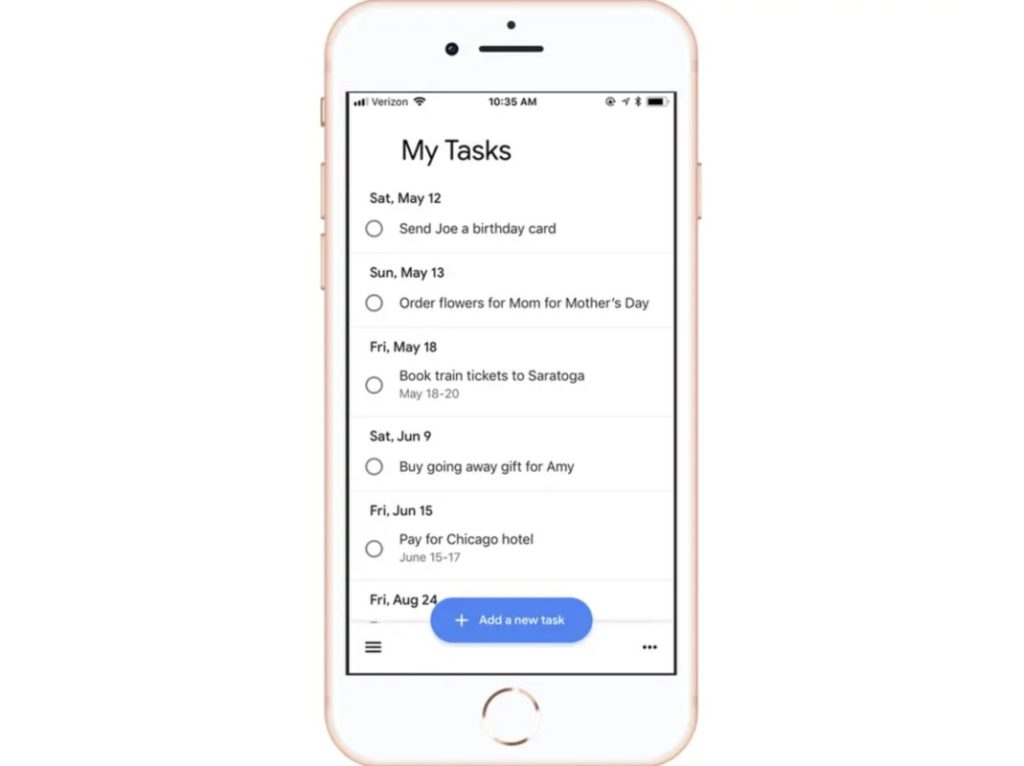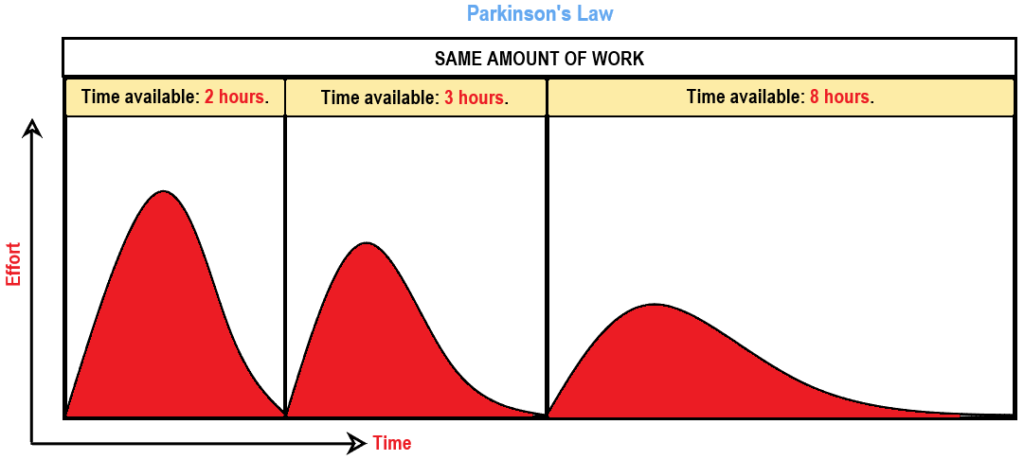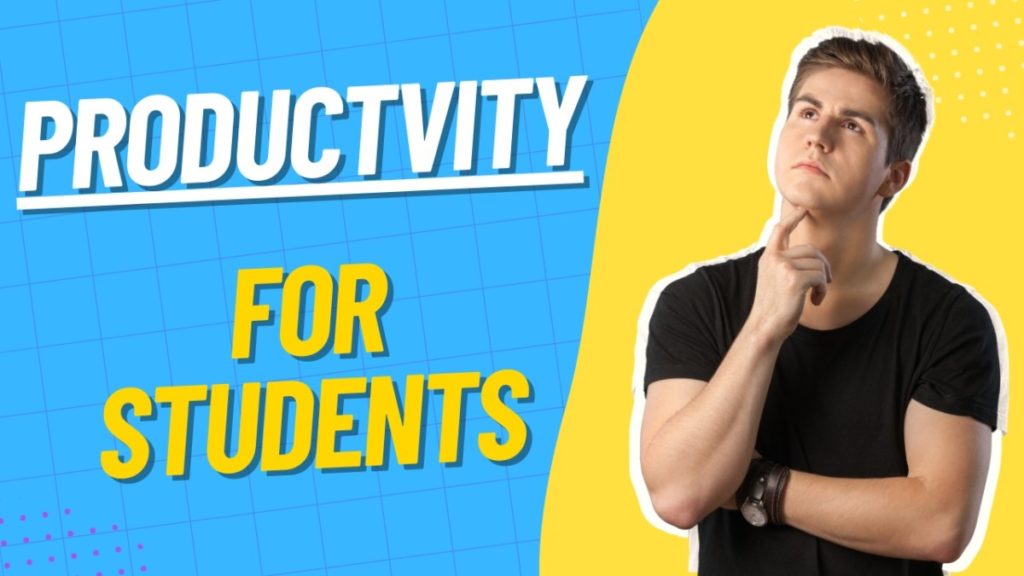Introduction
If you’re a student who has been struggling with time management or simply wants to be more productive, this article is for you.
While there are multiple articles and videos on the internet about being productive as a student, it can be overwhelming to find the actually practicable steps to increase your productivity.
I had the same experience.
I have had a lot of things to do for quite some time and managing my time to do everything (or even most of it) was a real stress.
So I researched and read books and watched videos on time management and productivity tips as a student.
And in this article, I am going to share exactly that with you.
In this article, I am going to talk about the productivity tips that actually work.
After reading this article, you will be a lot more productive than you’ve ever been as a student. Managing your time will also become a lot easier than ever before.
You will have all the tools and knowledge to start living like a super-productive student.
What Does Being Productive as a Student Really Mean?
Many people define productivity as “getting more done.” While that definition is not entirely incorrect, getting the important things done is a lot more essential than just getting things done.
As a student, this could mean getting your assignments, class readings, projects, or essays done. These tasks are more important than playing PUBG for example.
You first have to know what are the important things that you have to get done. And once you have them, you will know where to start.
Being productive as a student is simply being more efficient with your time. When you know your priorities, being productive is a lot easier.
With the tips shared in this article, you will know how to be productive.
Why be Productive as a Student?
If you can free your time, WHY NOT?

Being productive allows you the luxury to spend more time doing the things that you love. When you are more productive, you can save several hours every day that you can reinvest in the things your love.
While for some people this can mean watching Netflix or playing sports, for some, it can mean learning ways to actually make money online as a student.
The best part is that when you use productivity tactics and tools, you feel like you are getting more hours added to your life for free to do the things you love.
How to be Productive as a Student?
The internet is filled with productivity tips. You will find hundreds if not thousands of tips and tricks on being productive.
But the thing is: Most of them are useless. Most of the tips that you will see are not practical.
But the below-mentioned tips will work for you. Most will if not all.
With the proper productivity tips, you will become a Super Student.
Let’s begin!
1. Know What Takes Your Time
The first thing to do to become a productive student is to know where your time is spent. Most students have no idea about where they spend their time, and they complain that the day just passes by.
We will solve that first.
To do so, make a list of all the things you do from the moment you wake up to the moment you sleep.
Relax! You won’t have to do this regularly, only once.
Tracking your time will help you know about the unimportant things that take a lot of your time.
This creates self-awareness, and from self-awareness comes action (more time).
After you know what takes up your time, eliminate the things that take up your time but don’t provide much value in return (unimportant things in layman’s terms).
2. Use a To-Do List (No Stress!)
Using a to-do list can seem cliche but it is a very powerful tool. Just knowing what you have to get done for the day/week is just so helpful.
But the major reason why I use a to-do list is actually for the pressure it removes.
When I have a to-do list when anything comes up: it could be a new assignment or project that the professor gave or a call that I must make, I can simply note it down in my to-do list.
I don’t have to try to remember them.
“Your mind is for having ideas, not holding them.”
–David Allen
David Allen is the writer of one of the most popular books on productivity, Getting Things Done. What he said actually makes a whole love of sense.
We generate the most creative ideas when our mind does not have a lot of things to remember. When we use a to-do list, we are not only less stressed but also more creative.
How to use a To-Do list?
You can go both analog or/and digital if you want. I use a hybrid system for this.
If you prefer analog, you can keep a small diary or a piece of paper and jot down what you have to do for the day. The paper you use doesn’t have to be fancy.
In fact, I usually just tear a rough paper from my copy and use that as my analog to-do list. It is easy to carry and papers are allowed everywhere.
If you prefer digital, you can easily use an app such as Google Tasks on your phone. It has an easy-to-navigate interface, and reminders build in, so you can add times.
And the best part: It is totally FREE.

Tip 2 actually goes well with Tip 3 (Using a Calendar).
There are three things that I do and you should too:
- In the morning, I note down what I have to do for the day by looking at my calendar.
- I carry the paper with me throughout the day. I keep crossing whatever gets done.
- I jot down whatever comes up during the day on the paper along with important details associated with the task such as a time, date, or deadline.
3. Use a Calendar to Plan Your Life
Every night after you have a list of things you have to do (from tip #2), jot everything down in your Calendar.
Google Calendar is the best calendar you can use. It is simple, free, easy to navigate, and easily syncs across all your devices.
You can easily create blocks to schedule tasks and events that you have to get done. Using a calendar gives structure to your life, it makes your life a lot easier.
Knowing what things you have to do (in a structured manner) is a superpower. Google Calendar gives you that power.
You can watch the below-given video to learn how to use Google Calendar easily:
4. Use a Pomodoro Timer to Keep Yourself Going
The Pomodoro system is basically a practice of studying/working for 25 minutes, taking a 5-minute break, then again working for 25 minutes, and so on.
It’s a 25-5-25-5-25-5-25-20 cycle. So you study for 25 minutes (4 rounds), take a 5-minute break in the middle, and then at last after 4 rounds of 25-minute study sessions, you take a 20/30-minute long break.
The Pomodoro system aims at 2 things:
- Motivating you to study because you only have to study for 25 minutes at once. It kind of makes it fun to study. It gives you the encouragement to keep studying.
- It makes you more efficient. When you use a Pomodoro timer, you take frequent breaks which help you refuel yourself and come back to your studies with more focus.
It is important to not do things that give you a lot of dopamine release such as playing games, browsing social media, or watching a movie. You can take a small walk to get a glass of water for yourself.
You can use several websites to use Pomodoro Timer online.
5. Use The Two-Minute Rule
There are various ways in which the two-minute rule can be used.
In our case, the two-minute rule comes in when you really don’t feel like doing anything. When it is hard to start studying, that is when we use the power of the two-minute rule.
It suggests: “When you don’t want to do any task, do it only for 2 minutes. If even after 2 minutes, you don’t like to feel like studying, you don’t have to study.
The fun fact is that 9 out of 10 times, you will actually keep working because it gives you momentum.
6. Use Deadlines to Finish Tasks Faster
There is a very interesting concept I learned called Parkinson’s Law. It states “Work expands so as to fill the time available for its completion.”

To explain this law is rather simple, but its implications are hugely impactful. As shown in the picture above, time and effort are inversely proportional.
What that means is that when you put more effort into getting something done, it takes less time compared to if you did the same task with less effort.
That is where Parkinson’s Law comes in.
The trick here is to use this to our advantage. We have to intentionally give ourselves less time to do something than what it would normally take.
For example, if doing an Economics assignment would normally take me 45 minutes, I’ll give myself only 30 minutes to do it.
You will be surprised at how often it works. If I gave myself only 30 minutes to do my Economics assignment, I would get it done anyhow in 35 minutes.
Thus, setting deadlines is super useful.
7. Eliminate Distractions for Real Results
You can prepare all you want but if you will be distracted by a notification on your phone, everything is useless. Removing distractions from your surroundings such as your phone will actually help you a lot.
If you’re studying, turn on the “Do Not Disturb” mode that most modern smartphones have. It will block all the notifications so that you can just focus on studying.
After you’ve studied, you can get back to the missed calls and texts (if you have any).
Or even if you’re working on your side project after getting Canva Pro for FREE, eliminating distractions will be a very impactful move.
8. Make Things Obvious
This “make things obvious” tip comes from the book Atomic Habits by James Clear.
It is simply the practice of making the things that you want to do more obvious and easy to access and adding friction to the things you want to not do.
For example, if you wanted to read a book before you slept, keeping a book beside your bed and leaving your phone on a table far from your bed would be a smart move.
That way when you’d go to bed and get bored without your phone, you will pick up the book and start reading.
As a student, reducing friction in doing important things will make you a whole lot more productive.
9. Rest Well to Recharge Yourself
At the end of the day, you will need energy to be productive or to basically anything. For that very reason, getting a good night’s sleep is very essential.
Humans need sleep to maintain healthy bodies and minds. Our natural circadian rhythms typically cause us to enter a sleep cycle at least once every 24 hours.
Our bodies can release melatonin and adenosine to trigger a sleep cycle, and sleep medicine can also prompt sleepiness.
While no two individuals need the same amount of sleep, maintaining a stable sleep pattern provides your body with innumerable health benefits.
That’s a Wrap!
Look, just knowing how to be productive is not enough. On the internet, you will find numerous tips and methods to be more productive. But until and unless you don’t apply them in your own life, they are pretty much useless.
So what you have to do is actually try to apply them in your lives. That is the only way to actually progress and be more productive as a student.
If you have any confusion or questions, feel free to drop a comment down below. Until then, you can read the below-given articles.
Also Read
- How to Use Canva Pro For FREE
- How to use Spotify for FREE
- How to use Parallels for FREE FOREVER on Macbook (M1+Intel)
- How To Use Adobe Lightroom, Photoshop, etc for FREE on MAC
- How To Use Final Cut Pro X for FREE Forever
- How To Use Microsoft Office Apps For FREE (even offline)
- How To Read Wall Street Journal, NY Times, etc For FREE

